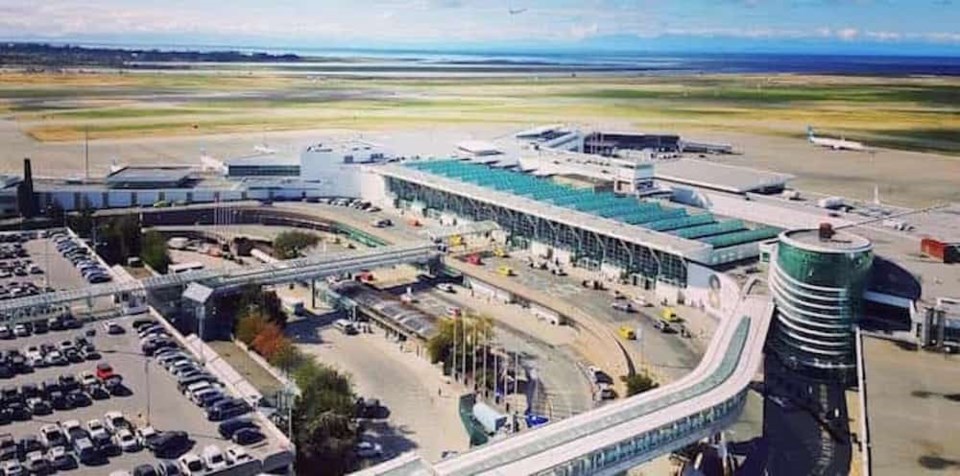The BC Centre for Disease Control (BCCDC) is warning airline passengers they may have been exposed to coronavirus (COVID-19) on several recent Vancouver flights.
Over the weekend, Vancouver Is Awesome shared eight Vancouver flights that were added to the list of potential COVID-19 public exposures.
Since then, the following seven new flights have been added to the BCCDC's list of affected flights:
- Dec. 21: North Cariboo Air NCB1547, Terrace – Vancouver (Rows not reported)
- Dec. 27: Air Canada AC127, Toronto – Vancouver (Rows 58 - 64)
- Dec. 28: United Airlines UA4769, San Francisco – Vancouver (Rows not reported)
- Dec. 29: Korean Air KE72, Vancouver – Seoul (ICN) (Rows 25 - 31)
- Dec. 30: Air Canada AC8262, Nanaimo – Vancouver (Rows 7 - 13)
- Dec. 30: Air Canada AC8418, Vancouver – Kelowna (Rows 3 -9)
- Dec. 31: Air Canada/Jazz AC2279, Terrace – Vancouver (Rows 1 - 5)
Any travellers returning to B.C. are encouraged to check the public health agency's website for updates about flights identified for the risk of exposure. Those travelling from outside of Canada, meanwhile, must arrive prepared with a 14-day self-isolation plan.
Pre and post-travel considerations during the coronavirus (COVID-19) pandemic
Currently, the Government of Canada states that you should avoid all travel outside of the country until further notice due to the novel coronavirus pandemic. In a global travel advisory, the government notes that "This advisory overrides other risk levels on this page, with the exception of any risk levels for countries or regions where we advise to avoid all travel."
Transport Minister Marc Garneau announced last Thursday that air travellers overseas will have to present proof of a negative molecular test — known as a PCR test, conducted with nose and throat swabs — that was taken within 72 hours of departure, unless such testing is unavailable.
The Transport Department has yet to provide a list of foreign agencies whose tests are considered acceptable or to establish how airline employees should determine whether a test certificate is valid, said National Airlines Council of Canada chief executive Mike McNaney.
--With files from the Canadian Press.



